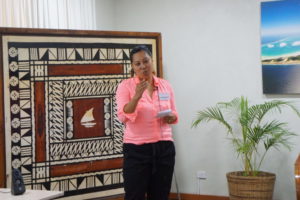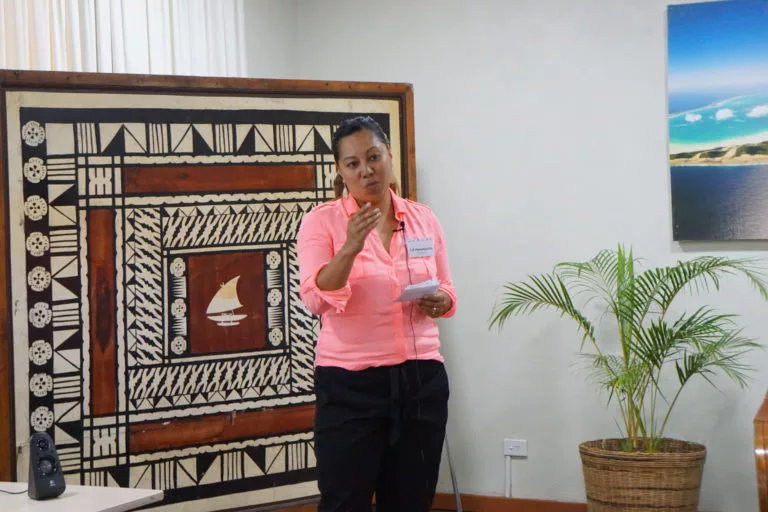A SOCAP Guest Post by Monica Jain
 Entrepreneurial interest in sustainable seafood is rising globally, as are the opportunities to succeed with new products and business models. The trend is clear in applications to the Fish 2.0 competition for sustainable seafood businesses: In 2013, 70 percent of Fish 2.0 applicants were from North America—and we wondered if we could persuade a significant number of entrepreneurs from areas such as the South Pacific Islands and Thailand to enter a North American business competition held in English on the Internet. We had our answer in 2015: only about half the entries were from North America, with about one-third coming from Asia and the Pacific Islands.
Entrepreneurial interest in sustainable seafood is rising globally, as are the opportunities to succeed with new products and business models. The trend is clear in applications to the Fish 2.0 competition for sustainable seafood businesses: In 2013, 70 percent of Fish 2.0 applicants were from North America—and we wondered if we could persuade a significant number of entrepreneurs from areas such as the South Pacific Islands and Thailand to enter a North American business competition held in English on the Internet. We had our answer in 2015: only about half the entries were from North America, with about one-third coming from Asia and the Pacific Islands.
This year, we expect even greater diversity: the competition has a new track structure designed to build seafood innovation networks in coastal regions around the world and create global networks around key opportunities in the seafood industry.
We’ve been holding workshops in the U.S. and internationally, and the promise is clear. In the seafood sector, small-scale businesses with an eye on global markets can make a difference in the local economy as well as the environment. The businesses participating our recent Pacific Islands workshop in Fiji are a great example of this potential—and of the value of providing seafood entrepreneurs with the kinds of training and investor networks that are commonplace in the tech sector.
The Power of the Pitch
“If you had the opportunity to generate income for a whole island, what would you do?”
That’s how Lili Kawaguchi opened her pitch during the closing session of Fish 2.0’s Pacific Islands business development workshop. The question grabbed attention, as did the rest of the Tongan entrepreneur’s pitch for her seaweed products start-up. But it’s a pitch she wouldn’t have made two days earlier, at the start of the workshop.
Lili was one of 25 entrepreneurs from across the Pacific—Fiji, Solomon Islands, Samoa, Vanuatu, Tonga, Marshall Islands, Papua New Guinea, Nauru, Cook Islands, Niue, and Kiribati—who attended the Nov. 8–10 workshop in Suva, Fiji.
They showed that there is plenty of entrepreneurial energy in the Pacific Islands, along with a growing sense of possibility. A number of workshop participants already operate successful businesses in other fields, and see compelling new opportunities in the seafood sector. Like entrepreneurs around the world, these people have business knowledge—what they need is coaching on how to talk to investors.
Learning to Speak Investor
None of the participants had ever pitched to investors—and that’s typical of seafood entrepreneurs around the world. Unless their business has been incubated in an accelerator (a rarity in the seafood industry), people don’t learn how to communicate effectively with investors.
The Pacific Islanders were quick learners.
Lili’s business, South Pacific Mozuku, harvests “a unique, naturally sourced seaweed that is used in high-end cosmetics that slow down the aging process,” her pitch continued. Islanders have been selling it for $3 a pound, but when it reaches the end of the supply chain it costs $3,000 a pound. “We want to ensure that the real value of the commodity flows back to the resource owner,” she said. “South Pacific Mozuku wants to bring value back to the community and start producing our own nutraceutical, health, and cosmetic products.”
 Lili’s business creates a cycle of positive impact. Growing the seaweed off the Tonga coast allows Mozuku to develop local stewardship of the coastal and marine habitats, so as the business grows, both the people and the reefs of Tonga benefit.
Lili’s business creates a cycle of positive impact. Growing the seaweed off the Tonga coast allows Mozuku to develop local stewardship of the coastal and marine habitats, so as the business grows, both the people and the reefs of Tonga benefit.
David Main pitched his peers on South Pacific Sustainable Seafood, an aquaculture startup in Samoa whose ocean-raised sea cucumbers could meet a huge demand for sea cucumbers in China. Samoa banned wild sea cucumber fishing because the island’s reefs were declining along with the sea cucumber population, which plays an important role in reef health. David’s business could increase the population of this globally diminishing marine mammal species, as well as provide replacement income for islanders who depended on the fishery.
“We’re working with local village communities to repopulate our oceans with sea cucumbers and improve our ocean ecosystem while allowing them to earn regular income using sustainable harvesting of a 100 percent locally produced export product…with a premium size, texture, and taste,” David explained in his pitch.
Fijian Filipe Rogers pitched his business processing and packaging cold-smoked tuna, a novel high-value product that tastes like sashimi. FIRUS Marina Investment pays local tuna fishers a premium price and operates the only cold-smoked fish processing plant in the South Pacific. Cold smoking is rare because it’s much harder to do than hot smoking: FIRUS starts the process as fresh tuna comes off the boat. The result is a preserved fish that’s in demand from export and local buyers. The workshop helped Felipe figure out how to negotiate with buyers and develop a growth strategy for his business.
Seeing the Business Value of a Positive Impact
As these pitches demonstrate, many of the workshop participants are making a positive social and environmental impact—they just hadn’t thought about it, or weren’t aware how much investors might value that impact.
The workshop taught them that by thinking about impact, they can go deeper and be more specific about the challenges they want to address. And they can integrate impact into their pitches. Once they started doing so, they quickly saw how important it is to presenting a compelling business model.
Workshop participants gained clarity about their strategies and goals generally. They also connected with each other and with supporters from workshop partners, including the U.S. State Department, the Pacific Islands Forum Fisheries Agency, Pacific Islands Trade and Invest, and the Pacific Islands Forum Secretariat. Connections like those are an important part of Fish 2.0’s mission—if you participate in Fish 2.0, you get business help and you build a network that can open up new opportunities for collaboration and growth.
Applications are open for the Fish 2.0 2017 competition through April 29. Sign up on the Fish 2.0 website. We also encourage investors, business leaders, and sustainability experts who want to participate in the competition to sign up now. Those who serve as judges and advisors receive priority access to the invitation-only final event.





